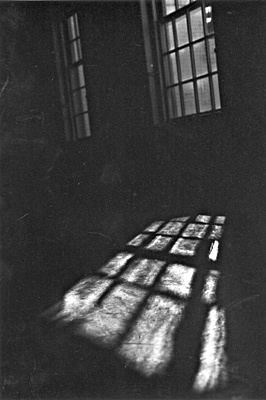All Nonfiction
- Bullying
- Books
- Academic
- Author Interviews
- Celebrity interviews
- College Articles
- College Essays
- Educator of the Year
- Heroes
- Interviews
- Memoir
- Personal Experience
- Sports
- Travel & Culture
All Opinions
- Bullying
- Current Events / Politics
- Discrimination
- Drugs / Alcohol / Smoking
- Entertainment / Celebrities
- Environment
- Love / Relationships
- Movies / Music / TV
- Pop Culture / Trends
- School / College
- Social Issues / Civics
- Spirituality / Religion
- Sports / Hobbies
All Hot Topics
- Bullying
- Community Service
- Environment
- Health
- Letters to the Editor
- Pride & Prejudice
- What Matters
- Back
Summer Guide
- Program Links
- Program Reviews
- Back
College Guide
- College Links
- College Reviews
- College Essays
- College Articles
- Back
An Attack on Muslim Self-Esteem MAG
Almost three years after the terrorist attacks ofSeptember 11, it appears the United States has healed its wounds. What manyAmericans are not conscious of, however, is that many American-Muslims have lostconfidence in themselves and the world of Islam because of the discriminationthey have faced since September 11. Muslims did not feel confident of theirstatus in America before, and the attacks of September 11th greatly exacerbatedthis uncertainty.
Although the U.S. recognized Islam as a legitimatereligion in 1952, trouble soon started brewing over the moral being of AmericanMuslims1. When Hamas Abdul Khaalis besieged three buildings in Washington, D.C.in 1977 (during which one person was killed and 30 held hostage), he helped toescalate the mercury in the U.S.-Muslim thermometer1. The thermometer nearlyshattered with the Oklahoma City bombing in 1995, which killed 168 people andlaunched a hate campaign against Muslims (even though it turned out to bedomestic terrorism and unrelated to Islam). In the minds of Americans, theseevents and the already-existing enmity toward Muslims affirmed that those ofMuslim descent performed the September 11th attacks.
The loss ofconfidence among American Muslims fiercely burns in me. While visiting my uncleand aunt, I sat in their family room, drinking lemonade and examining thedistorted images of my relatives through my glass, a fixation that alwaysfascinates me. My uncle was talking to my parents about the aftermath of theattacks and I listened, though I thought the attacks had no real repercussions inmy life since they happened two years before and no one I knew had been involved.As his words soaked into my mind and heart, I grasped the effects the attackmight have on me.
"I had all the qualifications for the job, years ofpilot training and experience that would have surely secured me a job a coupleyears ago," he explained.
"Why didn't you get it?" Iinterjected, though I had a feeling I knew.
"After September 11,they don't want a Muslim flying their planes. The way things are going, I mightnot have a job for awhile." The words don't want a Muslim echoed through mymind. Would I suffer the same injustices? Would my identity keep me fromsuccess?
Sadly, my uncle is one of many American Muslims who have facedinjustice in employment, and consequently a loss of self-esteem, since September11. Mohammed Hussein, a Muslim pilot with an impressive record, was fired oneweek after the attacks because of his belief in Islam and his Arabic appearance3.As a child it was his dream to fly, which he diligently worked to accomplish.When asked about his feelings he replied, "After coming to America andrealizing my dream, to have it snatched away because of my religion and how Ilook is devastating. That is not America.2"
The discharge of KarimEl-Raheb, the general manager of a seafood restaurant, following the attacksbecause of his Egyptian descent is another example2. The extent of discriminationin this case was taken to such a level that the co-owner repeatedly askedEl-Raheb to change his name to "something Latin" because he "couldpass for Hispanic2." Although I can only imagine what it feels like to beencouraged to abandon one's identity, it is a reality for many Muslim Americanswho, like Karim El-Raheb, have lost faith in their ability to withstandprejudice.
By coming together and fighting the misconceptions about Islam,Muslims worldwide can build their confidence and fight discrimination. "Ifwe do not speak up to what is the Islamic idea of a moral life and we are cowedinto always being on the defensive just to prove that we are merely human, it'sno use talking in the name of Islam," says Seyyed Hossein Nasr of GeorgeWashington University3. It is important for Muslims to unite and build theirsense of worth and self-respect, because if they don't, no one will. Withoutunity and self-assurance, life would be far more deformed than if people lookthrough lemonade glasses.
References include info from1 www.dawanet.com, 2 www.eeoc.gov and 3 www.pakistanlink.com

Similar Articles
JOIN THE DISCUSSION
This article has 9 comments.